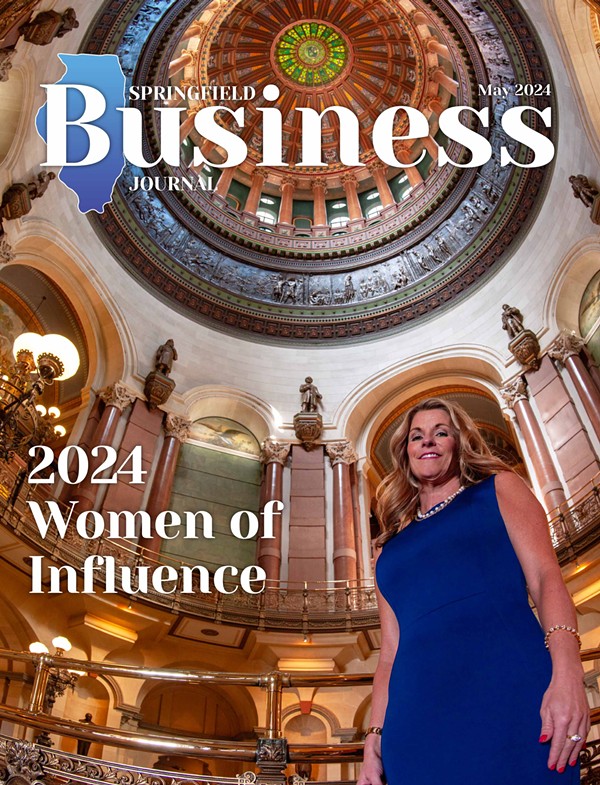As the workforce shifts in response to changing trends, Springfield staffing agencies are navigating these changes across a variety of industries. Changing government regulations, remote work, artificial intelligence, immigration and diversity, equity and inclusion are forces prompting change in local agencies this year.
New legislation for temporary workers
Temporary staffing agencies are regulated by the Illinois Department of Labor under the Day and Temporary Labor Services Act. A recent amendment to the act, which requires workers provided by staffing agencies to be paid the same as the hiring company's lowest-paid employees if they are on the job for more than 90 days, has impacted some agencies more than others.
Ginette Comstock, director of operations for Manpower of Central Illinois, said the amendment is definitely a trending topic. She said that fortunately, most Manpower clients have converted the temporary employee to hire by the end of 90 days. Stiff fines and penalties are levied on agencies that do not adhere to the amendment.
Remote work
Remote work is another hot topic, with a push-pull dynamic between companies wanting employees back in the office and the demand of the workforce to work remotely. Some people are reluctant to relinquish the work-life balance they achieved by working from home during the pandemic.
Chris Walters is senior vice president of Levi, Ray & Shoup Consulting Services, the IT and engineering staff augmentation division of LRS. He said this is a big consideration when filling IT positions. "People don't want to commute in traffic, they don't want to wear professional attire, and remote work is very attractive to them," Walters said. He noted that some employers are more flexible as long as people are coming in a few days of the week. "Our job is to fill our customers' offices with staff the way they want," he said.
"At LRS we are Midwest-focused, and most employers want to see people in the office. There are jobs we would (normally) fill with local resources that are being filled by companies that allow remote work," Walters said.
Artificial intelligence
Artificial intelligence is becoming part of everyday life for many people, but the business world is exercising caution before diving in. However, one area where AI is already becoming popular is for recruitment and hiring, according to the Society for Human Resource Management.
Comstock said Manpower uses Indeed for job postings, which incorporates some AI in that regard; otherwise, the firm does not actively use AI. She said that since AI has made recruiting and hiring more streamlined, some companies are hiring directly and no longer using staffing agencies.
Walters said, "At this point, we're kicking the tires of AI. We have to consider privacy laws and the protection of confidential information." He explained there are some safer ways to use AI, such as taking information from ChatGPT, pulling it into the company firewall to join it with company information and keeping it within the company.
"To use AI internally and ask it to tell us how much business we did with a particular company in a specific year would be great. That's a complex data set, and if you could pull in market data and leverage the best of both worlds, that would be a beneficial use of AI," said Walters.
DEI efforts
"We want our workforce to look like the world at large. A diverse workforce brings diverse ideas. which makes us stronger," said Shannon Heisler, director of marketing at LRS. "We match the right person to the job, and to do that we make sure jobs are getting in front of as many people as possible so we have a diverse applicant pool."
Comstock said that Manpower has been proactive regarding diversity, equity and inclusion, and Walters emphasized that staffing in general has the incentive to put as many qualified people to work as possible.
Walters explained that when hiring for IT jobs, qualified candidates come from around the world, especially India. He said LRS counts on access to the international pool of workers, but occasionally immigration bills attempt to limit that access. Since immigration is a hot topic at the national level, he believes legislation limiting international hires in the near future is a possibility.
Walters explained that LRS brings hires to the U.S. and provides them a path to citizenship. Heisler added, "Nationally, LRS is still publishing more IT jobs than there are IT applicants in this country. There needs to be a path to citizenship. If we don't get access to those people, business will get done off-shore, and it won't come back."















